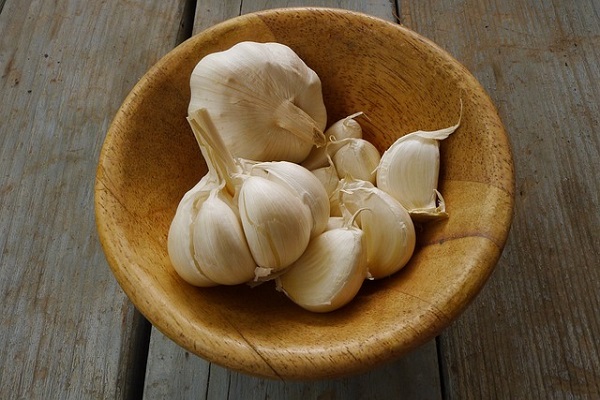Words: Team THINKWELLNESS360
Garlic is a strong and bitter herb. It adds an unbelievable flavour to cuisine. It is packed with several health benefits. The miracle herb has, for ages, being used as medicine to prevent, or treat, various medical conditions.
Allicin, a compound in garlic, is known to have great antibacterial, antiviral, antifungal and antioxidant properties. The benefits of allicin can be best garnered when garlic is finely chopped, minced, or pureed.
Allicin, along with other compounds like ajoene and alliin, have a host of beneficial effects on the circulatory, digestive and immunological systems of our body. They help in lowering blood pressure, promoting detoxification and healing.
Antibacterial, Antiviral & Antifungal
Garlic is well-known for its antibacterial and antiviral properties. Fresh garlic can prevent food poisoning by ‘killing’ the bacteria. It may help treat fungal skin infections, like ringworm and athlete’s foot. A daily intake of garlic helps in preventing the common cold. Its antibacterial properties help in treating throat irritations. Garlic may also reduce the severity of upper respiratory tract infections [URTI]. Garlic can help in lung disorders, like asthma, or difficulty in breathing. Its ability to promote expectoration makes it most useful in chronic bronchitis.
Blood Pressure
Certain compounds in garlic have the capacity to block the activity of angiotensin-II, a protein believed to help blood vessels contract, thereby increasing blood pressure. Garlic helps in reducing high blood pressure. The polysulphides present in garlic are converted into a gas called hydrogen sulphide by the red blood cells [RBCs]. Hydrogen sulphide dilates the blood vessels; in so doing, it helps reduce [high] blood pressure.
Heart Health
The anti-clotting properties of ajoene help in preventing the formation of blood clots in the body. Garlic protects our heart against heart attacks and atherosclerosis [hardening of the arteries]. With age, our arteries tend to lose their ability to stretch. Garlic may help reduce the prospect and may also protect the heart from the damaging effects of free radicals. The sulphur-containing compounds of garlic are also, likewise, evidenced to prevent our blood vessels from getting blocked and slow down the progression of atherosclerosis.
Anti-Allergic & Anti-Inflammatory
Garlic is endowed with anti-inflammatory properties. It can help the body fight against allergies. The anti-arthritic property of garlic is due to diallyl sulphide and thiacremonone. Garlic has been shown to improve allergic airway inflammation [allergic rhinitis] too. Raw garlic juice has been used to stop itching due to skin rashes caused by bug bites. Garlic also has the ability to moderately lower our blood triglycerides and total cholesterol.
Diabetes & Cancer
Garlic increases insulin release and, thus, helps to regulate blood sugar levels in diabetics. Applying fat dissolving garlic extracts to corns on the feet and warts on the hands is thought to heal such conditions. A daily intake of garlic has been found to lower the risk of certain types of cancer. Garlic’s anti-cancer property is due to allyl sulphides, PhIP, a type of heterocyclic amine [HCA] that may be associated with increased incidence of breast cancer among women. According to studies, diallyl sulphide found in garlic inhibits the transformation of PhIP into carcinogens.
Other Uses
Ferroportin is a protein which helps in iron absorption and release. Diallyl sulphides in garlic increase the production of ferroportin and help promote iron metabolism. Garlic is also believed to be an aphrodisiac.
Garlic can give relief in toothaches. Place some crushed garlic clove directly on the affected tooth; this can help relieve toothaches. The only caveat is — too much garlic may irritate your gums.
New research suggests that obesity is a state of long-term, low-grade inflammatory changes. Studies show that garlic may help to regulate the formation of fat cells in our body. Pre-adipocytes are converted into fat cells [adipocytes] through inflammatory system activity. Research also evidences that the anti-inflammatory property of 1, 2-DT [1, 2-vinyldithiin], found in garlic, may help inhibit the conversion and help prevent weight gain.

